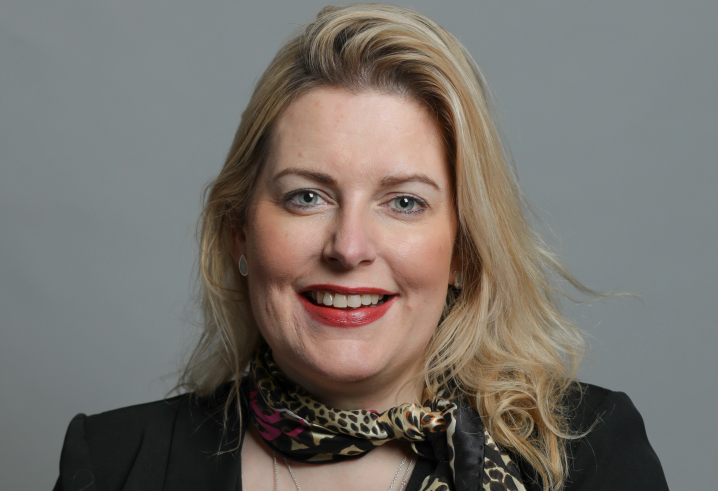It’s been yet another challenging year for charities and the news has been dominated by a rapid pace of change to sink your teeth into. We take a look back at some of the key moments from 2023.
_____________________________________________________________________
Much like 2022, 2023 was dominated by the impact of the cost-of-living crisis. In January, sector leaders warned the government as help with energy bills was scaled back. This came at the same time as warnings about fundraising, with one in five charity supporters claiming they would give less to charity in 2023.
The survey found that 20% of those who intend to give money to charity in 2023 expected to donate less than they did in 2022. Data is yet to prove that true, but indications suggest it’s likely correct.
Even in March the impact was making itself known, with half of charities being forced to use reserves to meet running costs (see more on p.22).
In August, a Rathbones survey found that around half (49%) of high-net-worth individuals and business owners were concerned about their ability to make charitable donations over the next 12 months, with 16% saying they were ‘very concerned’.
Overall, two thirds said they did not have plans to pass on their wealth to charities, with only 31% saying they would back good causes, through regular donations or establishing a legacy or foundation.
As the year went on, concerns about funding became more prevalent. An Ecclesiastical survey of more than 250 charities in November highlighted widespread concerns around reduced funding and increased running costs.
More than four in five charities said they were concerned about rising costs and seven in ten said their biggest concern is a loss of funding. Just under a third of charities said they have become more concerned about losing funding over the last year.
“The charity sector has worked relentlessly to adapt and overcome challenges thrown in its way over the last decade,” Ecclesiastical Insurance customer segment director Faith Kitchen said at the time.
“Austerity was followed by the pandemic and now charities are under pressure to meet a spiralling increase in demand as the cost-of-living crisis bites – all while feeling the pinch of a challenging financial landscape.”
It’s not just funding that took a hit. Knock-on effects were felt around the sector too, with a ‘cost-of-volunteering crisis’ emerging as the year went on. A survey in June of more than 1,100 charities found that two in five charities are “unable to meet their objectives over the last 12 months due to a lack of volunteers”.
Almost three in five (56%) charities said that volunteer recruitment over the last year “has been difficult”. Since November 2022, the proportion of small charities ranking the volunteering recruitment as their main concern grew from more than two in five (45%) to more than three in five (63%).
Mass participation events also took a hit. Enthuse’s Mass Events 2023 report looked at the types of charities supported by participants in marathons, sponsored walks and other events, in the 12 months to Autumn this year.
Over this period, support for animal charities decreased from almost a quarter of event participants to a fifth. Support for NHS, hospitals and hospice charities dropped from more than a quarter to a fifth, meanwhile charities supporting children, mental health, disease research, foodbanks, environment and local community causes all saw drops in support from event participants.
Strike time
A cost-of-living squeeze didn’t just affect beneficiaries; charity sector staff also felt the brunt and a number of strikes hit headlines, including at Shelter, Glasgow East Women’s Aid and Oxfam, many of which voted to strike for the first time.
In October, Oxfam offered its office and retail staff £1,750 or a 6% cent pay increase, whichever was higher, plus a one-off payment of £1,000. But the union Unite said workers rejected this offer as too low, given many are only earning “little more than the minimum wage”, and claiming many have seen their wages slashed by a fifth in real terms over the last five years.
In the same month, more than 60 Hull and East Riding Citizens Advice ended their strike action. Unite said the deal means the workers will receive an immediate payment of £2,925. This offer included a £1,500 payment across all grades for 2022/23, as well as a £425 payment, according to the union Unite. For this financial year the workers will receive a £1,000 payment. The strike had begun in July.
Some of the longest strike action was at homelessness charity St Mungo’s. It ended after three months of action in August with an offer of a 10.7% pay increase, or £3,125 in cash terms. Most workers will also receive a one-off payment of £700.The deal also means the lower paid workers will get a larger share of the pot and executive directors at the charity have agreed to a pay freeze for 2023/24, Unite the Union said.
The positive moments
The overall news landscape hasn’t been totally bleak, however. Many stories have been dominated by artificial intelligence (AI) and the positive benefits it could offer to the sector. There are now multiple programmes available, which can help charities write grant applications, social media content, create photographs and more.
Many charities are not quite ready for this change, though. Currently around three quarters of charities said they do not feel prepared to respond to the opportunities and challenges AI tools bring, the 2023 Charity Digital Skills report found.
It found that almost three quarters of charities are currently not using AI, while only 27% are using AI, although a further 26% say that while they are not using it yet they are planning to do so.
This slow uptake of AI comes as most charities (78%) believe that AI could be transformational for their organisation. But a similar proportion (73%) say they don’t feel prepared to respond to the opportunities and challenges it brings. More than half (52%) want to investigate using AI more, but feel constrained by a lack of time, resources and skills and more than two in five (42%) are trying to get colleagues to engage.
Another largely positive moment for the sector this year was the Big Help Out, which
took place over the coronation weekend and was attended by six million people. The initiative involved 55,123 scheduled events created by 33,228 charities and community organisations.
“From the youngest members of the Royal family to communities right across the country – people wanted to get stuck in. These figures show the scale of that enthusiasm and it’s now our task to keep up that momentum,” said Matt Hyde, chief executive of the Scouts.
Its success means it will return as an annual event. “We were bowled over by how many people took part in The Big Help Out in 2023 and told us they were inspired to volunteer in the future,” said Scouts chief executive Matt Hyde.
“In 2024, we will extend to three days to make it easier for schools and businesses to get involved. We also plan to target communities who were less likely to take
part in traditional volunteering. This is a hugely exciting opportunity to turn the dial on volunteering.”
RVS chief executive Catherine Johnstone added: “We want everyone to have the chance to find an opportunity with their name on, so they can reap the brilliant rewards that come from helping out in their communities.”
While the cost-of-living crisis continues to have an impact, there’s no doubt further cross-sector collaborations, coupled with technological developments, will help to provide a more balanced outlook for the year ahead.
Latest News
-
Funder to halt new applications amid demand surge and low success rate
-
Grantmaker offers mental health charities £1m in grants to bolster use of data
-
One in four charities failing to regularly monitor their reserves policy
-
Jane van Zyl: How charities can find strength in collaboration
-
Charity cuts its carbon footprint by 62% since 2021
-
Gifts in wills on the rise amid most generous year on record
Charity Times video Q&A: In conversation with Hilda Hayo, CEO of Dementia UK
Charity Times editor, Lauren Weymouth, is joined by Dementia UK CEO, Hilda Hayo to discuss why the charity receives such high workplace satisfaction results, what a positive working culture looks like and the importance of lived experience among staff. The pair talk about challenges facing the charity, the impact felt by the pandemic and how it's striving to overcome obstacles and continue to be a highly impactful organisation for anybody affected by dementia.
Charity Times Awards 2023
Mitigating risk and reducing claims

The cost-of-living crisis is impacting charities in a number of ways, including the risks they take. Endsleigh Insurance’s* senior risk management consultant Scott Crichton joins Charity Times to discuss the ramifications of prioritising certain types of risk over others, the financial implications risk can have if not managed properly, and tips for charities to help manage those risks.
* Coming soon… Howden, the new name for Endsleigh.
* Coming soon… Howden, the new name for Endsleigh.
Better Society

© 2021 Perspective Publishing Privacy & Cookies









Recent Stories